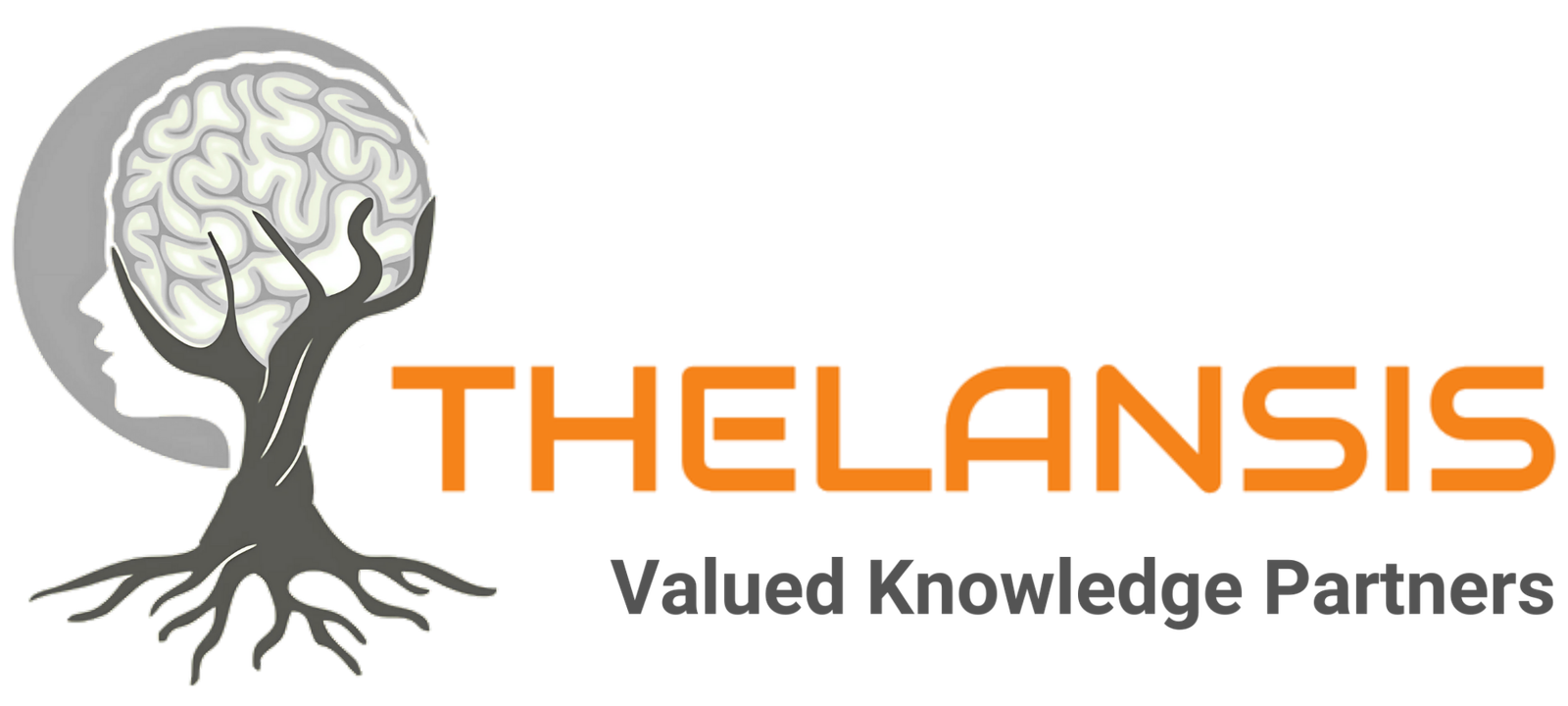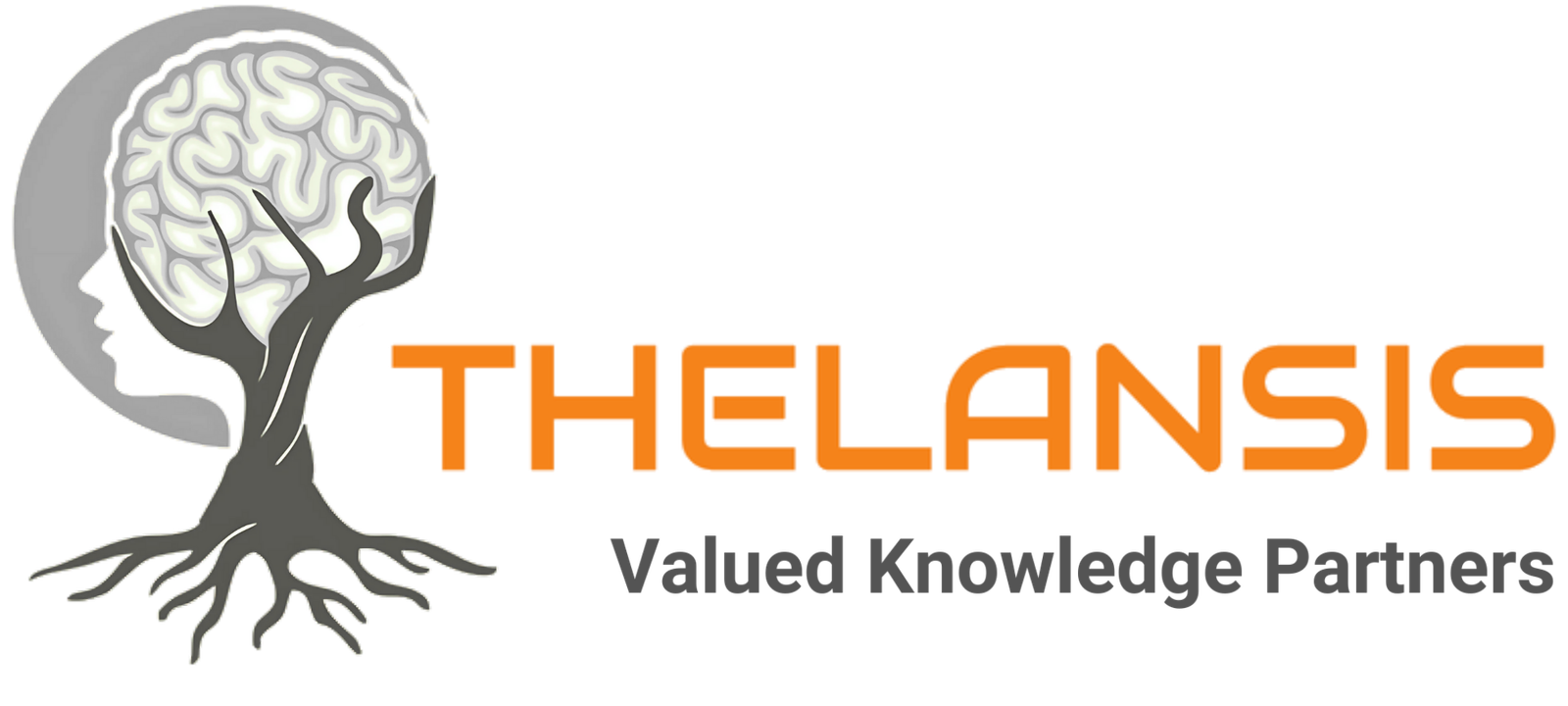Semantic Dementia (SD) – Market Outlook, Epidemiology, Competitive Landscape, and Market Forecast Report – 2022 To 2032
- Published Date : May 18, 2022
- Updated On : January 12, 2023
- Pages : 152
Semantic Dementia (SD) Market Outlook
Thelansis’s “Semantic Dementia (SD) Market Outlook, Epidemiology, Competitive Landscape, and Market Forecast Report – 2022 To 2032″ covers disease overview, epidemiology, drug utilization, prescription share analysis, competitive landscape, clinical practice, regulatory landscape, patient share, market uptake, market forecast, and key market insights under the potential Semantic Dementia treatment modalities options for eight major markets (USA, Germany, France, Italy, Spain, UK, Japan, and China).
Semantic Dementia Overview
Semantic dementia (SD) is a type of frontotemporal dementia characterized by the progressive, amodal and profound loss of semantic knowledge (combination of visual, anomia, associative agnosia, surface dyslexia or dysgraphia and disrupted comprehension of word meaning) and behavioral abnormalities, attributable to the degeneration of the anterior temporal lobes. Typically presenting as a progressive, fluent anomic aphasia, SD is the paradigmatic disorder of semantic memory with a characteristic anatomical profile of asymmetric, selective anteroinferior temporal lobe atrophy. The earliest and most common symptom of SD is a reduction in expressive vocabulary, commonly referred to as a “loss of memory for words”. Despite non-specific memory impairment, patients with SD typically exhibit relatively normal memory for recent day-to-day events and topographical aspects of memory, unlike early Alzheimer’s disease. The differential diagnosis of SD includes other forms of Primary Progressive Aphasia, Behavioural Variant Frontotemporal Dementia, and Clinical Alzheimer’s disease.
- In the USA, the estimated point prevalence of semantic dementia is 15–22 per 100,000.
Geography Covered:
North America- the United States and Canada
Europe- EU5 (Germany, France, Italy, Spain, and the United Kingdom)
Other countries- Japan & China
Study Period: 2022-2032
Current Clinical Practice and Treatment Algorithm
This section of the study covers country-specific current clinical practice, the standard of care, and significant limitations around addressing the unmet needs. Retrospective analysis and bench-marking of clinical study outcomes are presented in terms of Pre-treatment & post-treatment clinical and demographic patient characteristics. Essentially, this section will cover the evolution of the current competitive landscape and its impact on the future treatment paradigm.
KOL Insights:
KOLs across 8 MM markets from the center of Excellence/ Public/ Private hospitals participated in the study. Insights around current treatment landscape, epidemiology, clinical characteristics, future treatment paradigm, and Unmet needs
Market Forecast: Patient Based Forecast Model (MS. Excel Based Automated Dashboard)
– Data Inputs with sourcing
– Market Event and Product Event
– Country-specific Forecast Model
– Market uptake and patient share uptake
– Attribute Analysis
– Analog Analysis
– Disease burden and pricing scenario
– Summary and Insights
NPV/ IRR Calculator-
Optimization of cash flow/ revenue flow concerning all fixed and variable investments throughout the product development process. The rate of return on an investment is a critical indicator to ensure the profitability and break-even of the project.
Competitive Landscape:
The competitive landscape includes country-specific approved as well as pipeline therapies. Any asset/product-specific designation or review such as Orphan drug designation, Fast track, Priority Review, Breakthrough Therapy Designation, Rare Pediatric Disease Designation, and Accelerated Approval are tracked and supplemented with analyst commentary.
Clinical Trial Assessment-
Detailed clinical trial data analysis and critical product positioning include trial design, primary outcomes, secondary outcomes, dosing and schedules, inclusion and exclusion criteria, recruitment status and essentially covers the reported adverse events. Majorly the trial analysis helps determine the potential of the critical assets and their probable filing and launch date.
Unmet Medical Needs Overview-
This report presents the most important clinical unmet needs in the treatment, according to Thelansis research and analysis. Other essential unmet needs identified through our study include decreased cost burden on patients, improved administration convenience, and improved patient compliance.
Visit our social media pages:
Semantic Dementia (SD) Market Outlook
Thelansis’s “Semantic Dementia (SD) Market Outlook, Epidemiology, Competitive Landscape, and Market Forecast Report – 2022 To 2032″ covers disease overview, epidemiology, drug utilization, prescription share analysis, competitive landscape, clinical practice, regulatory landscape, patient share, market uptake, market forecast, and key market insights under the potential Semantic Dementia treatment modalities options for eight major markets (USA, Germany, France, Italy, Spain, UK, Japan, and China).
Semantic Dementia Overview
Semantic dementia (SD) is a type of frontotemporal dementia characterized by the progressive, amodal and profound loss of semantic knowledge (combination of visual, anomia, associative agnosia, surface dyslexia or dysgraphia and disrupted comprehension of word meaning) and behavioral abnormalities, attributable to the degeneration of the anterior temporal lobes. Typically presenting as a progressive, fluent anomic aphasia, SD is the paradigmatic disorder of semantic memory with a characteristic anatomical profile of asymmetric, selective anteroinferior temporal lobe atrophy. The earliest and most common symptom of SD is a reduction in expressive vocabulary, commonly referred to as a “loss of memory for words”. Despite non-specific memory impairment, patients with SD typically exhibit relatively normal memory for recent day-to-day events and topographical aspects of memory, unlike early Alzheimer’s disease. The differential diagnosis of SD includes other forms of Primary Progressive Aphasia, Behavioural Variant Frontotemporal Dementia, and Clinical Alzheimer’s disease.
- In the USA, the estimated point prevalence of semantic dementia is 15–22 per 100,000.
Geography Covered:
North America- the United States and Canada
Europe- EU5 (Germany, France, Italy, Spain, and the United Kingdom)
Other countries- Japan & China
Study Period: 2022-2032
Current Clinical Practice and Treatment Algorithm
This section of the study covers country-specific current clinical practice, the standard of care, and significant limitations around addressing the unmet needs. Retrospective analysis and bench-marking of clinical study outcomes are presented in terms of Pre-treatment & post-treatment clinical and demographic patient characteristics. Essentially, this section will cover the evolution of the current competitive landscape and its impact on the future treatment paradigm.
KOL Insights:
KOLs across 8 MM markets from the center of Excellence/ Public/ Private hospitals participated in the study. Insights around current treatment landscape, epidemiology, clinical characteristics, future treatment paradigm, and Unmet needs
Market Forecast: Patient Based Forecast Model (MS. Excel Based Automated Dashboard)
– Data Inputs with sourcing
– Market Event and Product Event
– Country-specific Forecast Model
– Market uptake and patient share uptake
– Attribute Analysis
– Analog Analysis
– Disease burden and pricing scenario
– Summary and Insights
NPV/ IRR Calculator-
Optimization of cash flow/ revenue flow concerning all fixed and variable investments throughout the product development process. The rate of return on an investment is a critical indicator to ensure the profitability and break-even of the project.
Competitive Landscape:
The competitive landscape includes country-specific approved as well as pipeline therapies. Any asset/product-specific designation or review such as Orphan drug designation, Fast track, Priority Review, Breakthrough Therapy Designation, Rare Pediatric Disease Designation, and Accelerated Approval are tracked and supplemented with analyst commentary.
Clinical Trial Assessment-
Detailed clinical trial data analysis and critical product positioning include trial design, primary outcomes, secondary outcomes, dosing and schedules, inclusion and exclusion criteria, recruitment status and essentially covers the reported adverse events. Majorly the trial analysis helps determine the potential of the critical assets and their probable filing and launch date.
Unmet Medical Needs Overview-
This report presents the most important clinical unmet needs in the treatment, according to Thelansis research and analysis. Other essential unmet needs identified through our study include decreased cost burden on patients, improved administration convenience, and improved patient compliance.
Visit our social media pages:
Semantic Dementia (SD) Competitive Landscape
| S. no | Asset | Company | Stage |
| 1 | AL001 | Alector Inc. | Phase 3 |
| 2 | TRx0237 | TauRx Therapeutics Ltd | Phase 3 |
| 3 | DNL593 | Denali Therapeutics Inc. | Phase 2 |
| 4 | N-Acetyl-L-Leucine | IntraBio Inc | Phase 3 |
| 5 | PR006 | Prevail Therapeutics | Phase 2 |
| 6 | Hydroxypropyl-beta-cyclodextrin | Cyclo Therapeutics, Inc. | Phase 3 |
| 7 | PBFT02 | Passage Bio, Inc. | Phase 2 |
| 8 | Adrabetadex | Mandos LLC | Phase 3 |
| 9 | Arimoclomol | ZevraDenmark | Phase 3 |
| 10 | TPN-101 | Transposon Therapeutics, Inc. | Phase 2 |
Continued…
KOLs across 8 MM market from the center of Excellence/ Public/ Private hospitals participated in the study. Insights around current treatment landscape, epidemiology, clinical characteristics, future treatment paradigm, and Unmet needs.
| COUNTRY | No. Of KOLs |
| USA | 17 |
| GERMANY | 4 |
| UK | 4 |
| SPAIN | 3 |
| FRANCE | 2 |
| ITALY | 3 |
| JAPAN | 3 |
| CHINA | 4 |
Semantic Dementia (SD) Market Forecast: Patient Based Forecast Model (MS. Excel Based Automated Dashboard)
Data Inputs with sourcing, Market Event, Product Event, Country specific Forecast Model, Market uptake and patient share uptake, Attribute Analysis, Analog Analysis, Disease burden, and pricing scenario, Summary, and Insights.

1. Semantic Dementia (SD) – Key Findings Summary |
| 1.1. Clinical findings |
| 1.1.1. Disease overview |
| 1.1.2. Therapeutic practices |
| 1.1.3. Future outlook |
| 1.2. Commercial findings |
| 1.2.1. Semantic Dementia (SD) market scenario 2022 |
| 1.2.2. Semantic Dementia (SD) market scenario 2025 |
| 1.2.3. Semantic Dementia (SD) market scenario 2032 |
2. Semantic Dementia (SD) Overview |
| 2.1. Disease Introduction |
| 2.2. Pathophysiology |
| 2.3. Signs and Symptoms |
| 2.4. Risk Factors |
| 2.5. Etiology |
| 2.6. Classification |
| 2.7. Pathogenesis |
| 2.8. Diagnosis |
| 2.9. Complications |
| 2.10. Treatment Algorithm |
| 2.10.1. Treatment in US (guidelines) |
| 2.10.2. Treatment in EU-5 (guidelines) |
| 2.10.3. Treatment in Japan (guidelines) |
| 2.10.4. Treatment in China (guidelines) |
| 2.11. Treatment Goals for Semantic Dementia (SD) |
| 2.12. Referral Patterns |
| 2.12.1. Referral Scenario in US |
| 2.12.2. Referral Scenario in EU-5 |
| 2.12.3. Referral Scenario in Japan |
| 2.12.4. Referral Scenario in China |
| 2.13. Semantic Dementia (SD) Prognosis |
| 2.14. Healthcare burden |
| 2.14.1. Healthcare burden in US |
| 2.14.2. Healthcare burden in EU-5 |
| 2.14.3. Healthcare burden in Japan |
| 2.14.4. Healthcare burden in China |
| 2.15. Unmet Needs in Semantic Dementia (SD) management |
| 2.16. Market Opportunity for Semantic Dementia (SD) |
| 2.17. KOL Comments on current and upcoming/expected treatment practices in Semantic Dementia (SD) |
3. Epidemiology |
| 3.1. Epidemiology Overview |
| 3.2. Epidemiology by Geography |
| 3.2.1. Semantic Dementia (SD) Epidemiology in US (2022-2032) |
| 3.2.1.1. Incidence of Semantic Dementia (SD) |
| 3.2.1.2. Diagnosed cases |
| 3.2.1.3. Treatable Patient Pool |
| 3.2.1.4. Epidemiology Trends |
| 3.2.2. Semantic Dementia (SD) Epidemiology in EU-5 (2022-2032) |
| 3.2.2.1. Incidence of Semantic Dementia (SD) |
| 3.2.2.2. Diagnosed cases |
| 3.2.2.3. Treatable Patient Pool |
| 3.2.2.4. Epidemiology Trends |
| 3.2.3. Semantic Dementia (SD) Epidemiology in Japan (2022-2032) |
| 3.2.3.1. Incidence of Semantic Dementia (SD) |
| 3.2.3.2. Diagnosed cases |
| 3.2.3.3. Treatable Patient Pool |
| 3.2.3.4. Epidemiology Trends |
| 3.2.4. Semantic Dementia (SD) Epidemiology in China (2022-2032) |
| 3.2.4.1. Incidence of Semantic Dementia (SD) |
| 3.2.4.2. Diagnosed cases |
| 3.2.4.3. Treatable Patient Pool |
| 3.2.4.4. Epidemiology Trends |
| 3.3. Epidemiology Trends (World-wide) |
4. Market Outlook |
| 4.1. US Semantic Dementia (SD) Market Forecast 2022-2032 |
| 4.1.1. Market Progression (Futuristic) |
| 4.1.2. Market Trends and Expectations |
| 4.1.2.1. Worst case scenario |
| 4.1.2.2. Base Case Scenario |
| 4.1.2.3. Best Case Scenario |
| 4.1.3. Drivers and Barriers |
| 4.2. UK Semantic Dementia (SD) Market Forecast 2022-2032 |
| 4.2.1. Market Progression (Futuristic) |
| 4.2.2. Market Trends and Expectations |
| 4.2.2.1. Worst case scenario |
| 4.2.2.2. Base Case Scenario |
| 4.2.2.3. Best Case Scenario |
| 4.2.3. Drivers and Barriers |
| 4.3. France Semantic Dementia (SD) Market Forecast 2022-2032 |
| 4.3.1. Market Progression (Futuristic) |
| 4.3.2. Market Trends and Expectations |
| 4.3.2.1. Worst case scenario |
| 4.3.2.2. Base Case Scenario |
| 4.3.2.3. Best Case Scenario |
| 4.3.3. Drivers and Barriers |
| 4.4. Germany Semantic Dementia (SD) Market Forecast 2022-2032 |
| 4.4.1. Market Progression (Futuristic) |
| 4.4.2. Market Trends and Expectations |
| 4.4.2.1. Worst case scenario |
| 4.4.2.2. Base Case Scenario |
| 4.4.2.3. Best Case Scenario |
| 4.4.3. Drivers and Barriers |
| 4.5. Italy Semantic Dementia (SD) Market Forecast 2022-2032 |
| 4.5.1. Market Progression (Futuristic) |
| 4.5.2. Market Trends and Expectations |
| 4.5.2.1. Worst case scenario |
| 4.5.2.2. Base Case Scenario |
| 4.5.2.3. Best Case Scenario |
| 4.5.3. Drivers and Barriers |
| 4.6. Spain Semantic Dementia (SD) Market Forecast 2022-2032 |
| 4.6.1. Market Progression (Futuristic) |
| 4.6.2. Market Trends and Expectations |
| 4.6.2.1. Worst case scenario |
| 4.6.2.2. Base Case Scenario |
| 4.6.2.3. Best Case Scenario |
| 4.6.3. Drivers and Barriers |
| 4.7. Japan Semantic Dementia (SD) Market Forecast 2022-2032 |
| 4.7.1. Market Progression (Futuristic) |
| 4.7.2. Market Trends and Expectations |
| 4.7.2.1. Worst case scenario |
| 4.7.2.2. Base Case Scenario |
| 4.7.2.3. Best Case Scenario |
| 4.7.3. Drivers and Barriers |
| 4.8. China Semantic Dementia (SD) Market Forecast 2022-2032 |
| 4.8.1. Market Progression (Futuristic) |
| 4.8.2. Market Trends and Expectations |
| 4.8.2.1. Worst case scenario |
| 4.8.2.2. Base Case Scenario |
| 4.8.2.3. Best Case Scenario |
| 4.8.3. Drivers and Barriers |
| 4.9. Key Expected Milestones (world-wide) Impacting the Market |
5. Competitive Landscape |
| 5.1. Pipeline Therapies Overview |
| 5.1.1. Phase III Therapies |
| 5.1.1.1. Current Status |
| 5.1.1.2. Trial details, results |
| 5.1.1.3. Approval Timeline |
| 5.1.1.4. Likelihood of approval |
| 5.1.1.5. Expected Product Positioning |
| 5.1.1.2. All other Phase III Therapies ….. |
| 5.1.1.3. Attribute Analysis of Phase III molecules |
| 5.1.2. Phase II and Phase I/II Therapies |
| 5.1.2.1. Current Status |
| 5.1.2.2. Trial details, results |
| 5.1.2.3. Approval Timelines |
| 5.1.3. List of active Pre-clinical Therapies |
| 5.1.3.1. Status in Semantic Dementia (SD) |
| 5.1.3.2. Company positioning |
| 5.1.3.2. All other pre-clinical therapies |
| 5.1.4. List of Inactive/discontinued assets |
| 5.1.4.1. Business impact of discontinuations on current pipeline |
| 5.1.5. Potential winners from Semantic Dementia (SD) Pipeline |
| 5.1.5.1. Potential Blockbusters across the pipeline |
6. Regulatory/Approval Scenario |
| 6.1. Regulatory/Approval Framework in US |
| 6.1.1. Policy Framework |
| 6.1.2. Payer Expectations |
| 6.2. Regulatory/Approval Framework in UK |
| 6.2.1. Policy Framework |
| 6.2.2. Payer Expectations |
| 6.3. Regulatory/Approval Framework in France |
| 6.3.1. Policy Framework |
| 6.3.2. Payer Expectations |
| 6.4. Regulatory/Approval Framework in Germany |
| 6.4.1. Policy Framework |
| 6.4.2. Payer Expectations |
| 6.5. Regulatory/Approval Framework in Italy |
| 6.5.1. Policy Framework |
| 6.5.2. Payer Expectations |
| 6.6. Regulatory/Approval Framework in Spain |
| 6.6.1. Policy Framework |
| 6.6.2. Payer Expectations |
| 6.7. Regulatory/Approval Framework in Japan |
| 6.7.1. Policy Framework |
| 6.7.2. Payer Expectations |
| 6.8. Regulatory/Approval Framework in China |
| 6.8.1. Policy Framework |
| 6.8.2. Payer Expectations |
7. Clinical Trial Assessment – Current and Future Paradigm |
| 7.1. Distribution of Primary Endpoints across trials |
| 7.2. Distribution of Secondary Endpoints across trials |
| 7.3. Evolution and acceptance of surrogate endpoints |
| 7.4. Key Investigator initiated trials |
| 7.5. Attrition analysis |
| 7.5.1. Suspended/Discontinued Assets |
| 7.5.2. Failed Trials, Reasons and Business Impact |
| 7.5.3. Terminated Trials, Reasons and Business Impact |
| 7.5.4. Withdrawn Trials, Reasons and Business Impact |
| 7.6. Trial enrollment scenario and challenges |
| 7.7. Clinical Trial Guidance (across geographies) |
8. Thelansis Commentary |
| 8.1. Key Unmet needs in Semantic Dementia (SD) |
| 8.2. Possible Best-case Clinical Trial Strategies |
| 8.3. Possible Best Case Targeted Product Profile (TPP) |
| 8.4. Possible Best-case Market positioning strategies |
| 8.5. Possible Best-case Market Access Strategies |
| 8.6. Possible Best-case LCM Strategies |
| 8.7. Overall View on Semantic Dementia (SD) Market in Dollar Value |
9. Report Methodology |
| 9.1. Secondary research |
| 9.2. Primary research |
| 9.3. Data collation |
| 9.4. Insight Generation |
10. About Thelansis |
| 10.1. Our Capabilities |
| 10.2. Our Services |
| 10.3. Our Contacts |
| 10.4. Disclaimer |
Table of contents (TOC)
1. Semantic Dementia (SD) – Key Findings Summary |
| 1.1. Clinical findings |
| 1.1.1. Disease overview |
| 1.1.2. Therapeutic practices |
| 1.1.3. Future outlook |
| 1.2. Commercial findings |
| 1.2.1. Semantic Dementia (SD) market scenario 2022 |
| 1.2.2. Semantic Dementia (SD) market scenario 2025 |
| 1.2.3. Semantic Dementia (SD) market scenario 2032 |
2. Semantic Dementia (SD) Overview |
| 2.1. Disease Introduction |
| 2.2. Pathophysiology |
| 2.3. Signs and Symptoms |
| 2.4. Risk Factors |
| 2.5. Etiology |
| 2.6. Classification |
| 2.7. Pathogenesis |
| 2.8. Diagnosis |
| 2.9. Complications |
| 2.10. Treatment Algorithm |
| 2.10.1. Treatment in US (guidelines) |
| 2.10.2. Treatment in EU-5 (guidelines) |
| 2.10.3. Treatment in Japan (guidelines) |
| 2.10.4. Treatment in China (guidelines) |
| 2.11. Treatment Goals for Semantic Dementia (SD) |
| 2.12. Referral Patterns |
| 2.12.1. Referral Scenario in US |
| 2.12.2. Referral Scenario in EU-5 |
| 2.12.3. Referral Scenario in Japan |
| 2.12.4. Referral Scenario in China |
| 2.13. Semantic Dementia (SD) Prognosis |
| 2.14. Healthcare burden |
| 2.14.1. Healthcare burden in US |
| 2.14.2. Healthcare burden in EU-5 |
| 2.14.3. Healthcare burden in Japan |
| 2.14.4. Healthcare burden in China |
| 2.15. Unmet Needs in Semantic Dementia (SD) management |
| 2.16. Market Opportunity for Semantic Dementia (SD) |
| 2.17. KOL Comments on current and upcoming/expected treatment practices in Semantic Dementia (SD) |
3. Epidemiology |
| 3.1. Epidemiology Overview |
| 3.2. Epidemiology by Geography |
| 3.2.1. Semantic Dementia (SD) Epidemiology in US (2022-2032) |
| 3.2.1.1. Incidence of Semantic Dementia (SD) |
| 3.2.1.2. Diagnosed cases |
| 3.2.1.3. Treatable Patient Pool |
| 3.2.1.4. Epidemiology Trends |
| 3.2.2. Semantic Dementia (SD) Epidemiology in EU-5 (2022-2032) |
| 3.2.2.1. Incidence of Semantic Dementia (SD) |
| 3.2.2.2. Diagnosed cases |
| 3.2.2.3. Treatable Patient Pool |
| 3.2.2.4. Epidemiology Trends |
| 3.2.3. Semantic Dementia (SD) Epidemiology in Japan (2022-2032) |
| 3.2.3.1. Incidence of Semantic Dementia (SD) |
| 3.2.3.2. Diagnosed cases |
| 3.2.3.3. Treatable Patient Pool |
| 3.2.3.4. Epidemiology Trends |
| 3.2.4. Semantic Dementia (SD) Epidemiology in China (2022-2032) |
| 3.2.4.1. Incidence of Semantic Dementia (SD) |
| 3.2.4.2. Diagnosed cases |
| 3.2.4.3. Treatable Patient Pool |
| 3.2.4.4. Epidemiology Trends |
| 3.3. Epidemiology Trends (World-wide) |
4. Market Outlook |
| 4.1. US Semantic Dementia (SD) Market Forecast 2022-2032 |
| 4.1.1. Market Progression (Futuristic) |
| 4.1.2. Market Trends and Expectations |
| 4.1.2.1. Worst case scenario |
| 4.1.2.2. Base Case Scenario |
| 4.1.2.3. Best Case Scenario |
| 4.1.3. Drivers and Barriers |
| 4.2. UK Semantic Dementia (SD) Market Forecast 2022-2032 |
| 4.2.1. Market Progression (Futuristic) |
| 4.2.2. Market Trends and Expectations |
| 4.2.2.1. Worst case scenario |
| 4.2.2.2. Base Case Scenario |
| 4.2.2.3. Best Case Scenario |
| 4.2.3. Drivers and Barriers |
| 4.3. France Semantic Dementia (SD) Market Forecast 2022-2032 |
| 4.3.1. Market Progression (Futuristic) |
| 4.3.2. Market Trends and Expectations |
| 4.3.2.1. Worst case scenario |
| 4.3.2.2. Base Case Scenario |
| 4.3.2.3. Best Case Scenario |
| 4.3.3. Drivers and Barriers |
| 4.4. Germany Semantic Dementia (SD) Market Forecast 2022-2032 |
| 4.4.1. Market Progression (Futuristic) |
| 4.4.2. Market Trends and Expectations |
| 4.4.2.1. Worst case scenario |
| 4.4.2.2. Base Case Scenario |
| 4.4.2.3. Best Case Scenario |
| 4.4.3. Drivers and Barriers |
| 4.5. Italy Semantic Dementia (SD) Market Forecast 2022-2032 |
| 4.5.1. Market Progression (Futuristic) |
| 4.5.2. Market Trends and Expectations |
| 4.5.2.1. Worst case scenario |
| 4.5.2.2. Base Case Scenario |
| 4.5.2.3. Best Case Scenario |
| 4.5.3. Drivers and Barriers |
| 4.6. Spain Semantic Dementia (SD) Market Forecast 2022-2032 |
| 4.6.1. Market Progression (Futuristic) |
| 4.6.2. Market Trends and Expectations |
| 4.6.2.1. Worst case scenario |
| 4.6.2.2. Base Case Scenario |
| 4.6.2.3. Best Case Scenario |
| 4.6.3. Drivers and Barriers |
| 4.7. Japan Semantic Dementia (SD) Market Forecast 2022-2032 |
| 4.7.1. Market Progression (Futuristic) |
| 4.7.2. Market Trends and Expectations |
| 4.7.2.1. Worst case scenario |
| 4.7.2.2. Base Case Scenario |
| 4.7.2.3. Best Case Scenario |
| 4.7.3. Drivers and Barriers |
| 4.8. China Semantic Dementia (SD) Market Forecast 2022-2032 |
| 4.8.1. Market Progression (Futuristic) |
| 4.8.2. Market Trends and Expectations |
| 4.8.2.1. Worst case scenario |
| 4.8.2.2. Base Case Scenario |
| 4.8.2.3. Best Case Scenario |
| 4.8.3. Drivers and Barriers |
| 4.9. Key Expected Milestones (world-wide) Impacting the Market |
5. Competitive Landscape |
| 5.1. Pipeline Therapies Overview |
| 5.1.1. Phase III Therapies |
| 5.1.1.1. Current Status |
| 5.1.1.2. Trial details, results |
| 5.1.1.3. Approval Timeline |
| 5.1.1.4. Likelihood of approval |
| 5.1.1.5. Expected Product Positioning |
| 5.1.1.2. All other Phase III Therapies ….. |
| 5.1.1.3. Attribute Analysis of Phase III molecules |
| 5.1.2. Phase II and Phase I/II Therapies |
| 5.1.2.1. Current Status |
| 5.1.2.2. Trial details, results |
| 5.1.2.3. Approval Timelines |
| 5.1.3. List of active Pre-clinical Therapies |
| 5.1.3.1. Status in Semantic Dementia (SD) |
| 5.1.3.2. Company positioning |
| 5.1.3.2. All other pre-clinical therapies |
| 5.1.4. List of Inactive/discontinued assets |
| 5.1.4.1. Business impact of discontinuations on current pipeline |
| 5.1.5. Potential winners from Semantic Dementia (SD) Pipeline |
| 5.1.5.1. Potential Blockbusters across the pipeline |
6. Regulatory/Approval Scenario |
| 6.1. Regulatory/Approval Framework in US |
| 6.1.1. Policy Framework |
| 6.1.2. Payer Expectations |
| 6.2. Regulatory/Approval Framework in UK |
| 6.2.1. Policy Framework |
| 6.2.2. Payer Expectations |
| 6.3. Regulatory/Approval Framework in France |
| 6.3.1. Policy Framework |
| 6.3.2. Payer Expectations |
| 6.4. Regulatory/Approval Framework in Germany |
| 6.4.1. Policy Framework |
| 6.4.2. Payer Expectations |
| 6.5. Regulatory/Approval Framework in Italy |
| 6.5.1. Policy Framework |
| 6.5.2. Payer Expectations |
| 6.6. Regulatory/Approval Framework in Spain |
| 6.6.1. Policy Framework |
| 6.6.2. Payer Expectations |
| 6.7. Regulatory/Approval Framework in Japan |
| 6.7.1. Policy Framework |
| 6.7.2. Payer Expectations |
| 6.8. Regulatory/Approval Framework in China |
| 6.8.1. Policy Framework |
| 6.8.2. Payer Expectations |
7. Clinical Trial Assessment – Current and Future Paradigm |
| 7.1. Distribution of Primary Endpoints across trials |
| 7.2. Distribution of Secondary Endpoints across trials |
| 7.3. Evolution and acceptance of surrogate endpoints |
| 7.4. Key Investigator initiated trials |
| 7.5. Attrition analysis |
| 7.5.1. Suspended/Discontinued Assets |
| 7.5.2. Failed Trials, Reasons and Business Impact |
| 7.5.3. Terminated Trials, Reasons and Business Impact |
| 7.5.4. Withdrawn Trials, Reasons and Business Impact |
| 7.6. Trial enrollment scenario and challenges |
| 7.7. Clinical Trial Guidance (across geographies) |
8. Thelansis Commentary |
| 8.1. Key Unmet needs in Semantic Dementia (SD) |
| 8.2. Possible Best-case Clinical Trial Strategies |
| 8.3. Possible Best Case Targeted Product Profile (TPP) |
| 8.4. Possible Best-case Market positioning strategies |
| 8.5. Possible Best-case Market Access Strategies |
| 8.6. Possible Best-case LCM Strategies |
| 8.7. Overall View on Semantic Dementia (SD) Market in Dollar Value |
9. Report Methodology |
| 9.1. Secondary research |
| 9.2. Primary research |
| 9.3. Data collation |
| 9.4. Insight Generation |
10. About Thelansis |
| 10.1. Our Capabilities |
| 10.2. Our Services |
| 10.3. Our Contacts |
| 10.4. Disclaimer |




